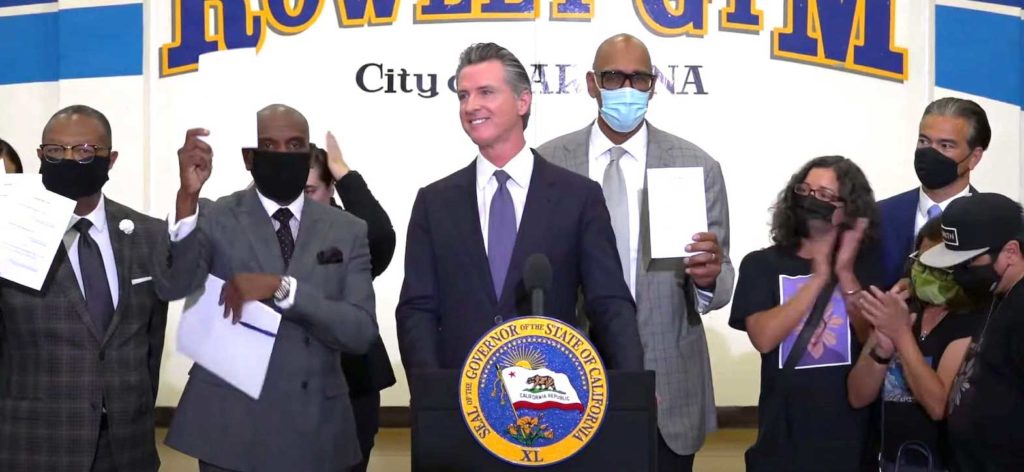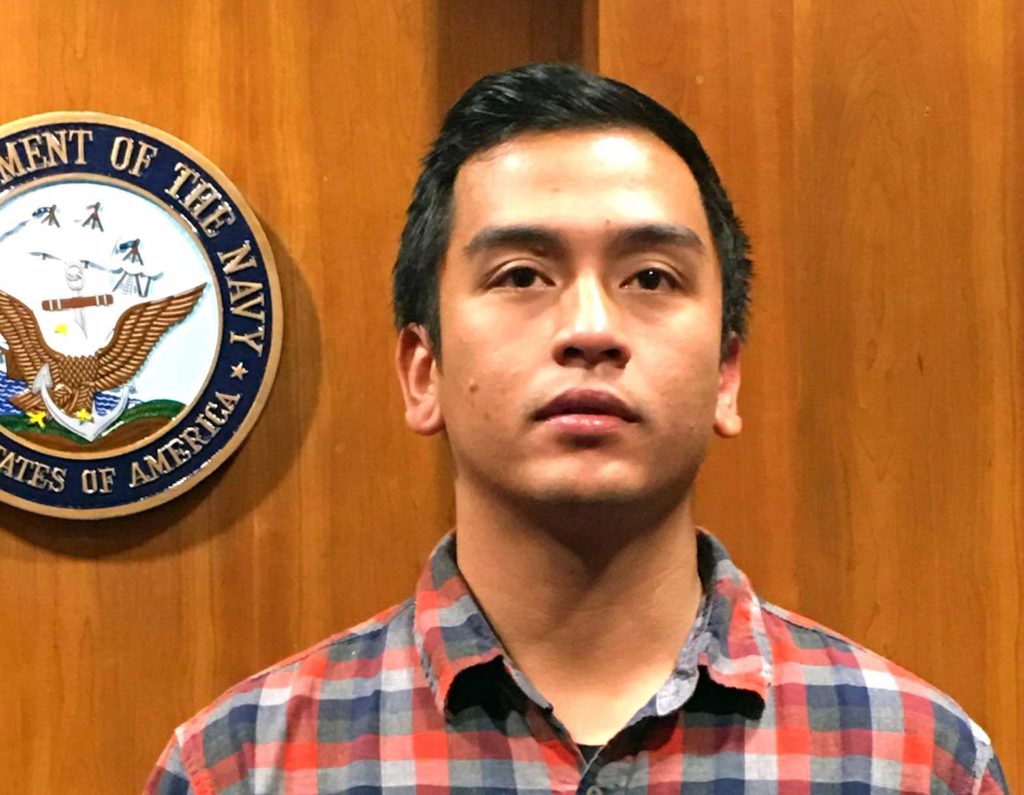Gov. Newsom signs reform bill named after Fil-Am who died in police hands

Governor Gavin Newsom on Sept. 30, 2021 signed legislation creating a system to decertify peace officers for serious misconduct. He was joined by legislators, community leaders, and families of victims of police violence. TWITTER
SACRAMENTO, California — Governor Gavin Newsom signed the Angelo Quinto Act, which bans certain life-threatening police restraint techniques, among eight new police reform bills, Thursday, Sept. 30.
The bills make it easier to decertify officers with misconduct records and prevent from being able to work for another law enforcement agency without facing any disciplinary action.
AB 490, also known as the Angelo Quinto Act, focuses on use of force, but specifically positional asphyxia. The family of Quinto, a U.S. Navy veteran, accused Antioch, California police of kneeling on his neck, suffocating and killing him while he was having a mental crisis.
Existing law prohibits any law enforcement agency from authorizing the use of a carotid restraint or a chokehold, and this bill now also prohibits authorizing techniques or transport methods that involve a substantial risk of positional asphyxia.
The new legislation comes more than one year after the death of George Floyd in police hands.
Police in California will now be held to a higher, and more public, standard. Some of the bills also limit the use of force permitted under certain circumstances.

Governor Newsom signed a police reform bill in the name of Angelo Quinto. INQUIRER FILE
AB 48 would ban the use of rubber bullets or tear gas by any law enforcement agency in order to disperse any assembly protest or demonstration, with some exceptions.
AB 481 regulates the funding, acquisition, and use of military equipment by police.
AB 958 defines the term “law enforcement gang” and requires law enforcement agencies to fire any officer who participates in one.
SB 16 raises transparency over police officer misconduct records.
AB 89 raises the qualifying age for police officers from 18 to 21. It changes the way officers are certified by requiring the Office of the Chancellor of the California Community Colleges to develop a modern policing degree program and submit those recommendations on or before June 1, 2023. The Commission must adopt the recommended criteria within two years.
Senate Bill 2 prohibits anyone convicted of a felony from regaining eligibility to be hired as a police officer. It creates a system with the Commission on Peace Officer Standards and Training to investigate and revoke or suspend certifications for serious violations including excessive force, sexual assault, demonstration of bias, and dishonesty. It also creates the Peace Officer Standards Accountability Division and Advisory Board to review serious misconduct cases.
AB 26 requires immediate reporting of excessive force and bans retaliation for reporting. It also requires the observing officer to intervene on behalf of the subject, and if they don’t they could be disciplined up to and including the same manner as the officer who used excessive force.

